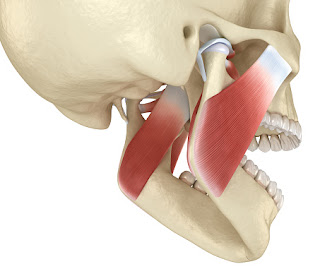Explaining Meniere's Disease
Meniere's disease can occur at any age, but it usually starts between young and adulthood. It's considered a chronic condition, but various treatments can help relieve symptoms and minimize the long-term impact on your life. Meniere's disease is a disorder of the inner ear that can lead to vertigo and hearing loss. Meniere's disease affects only one ear in most cases.
Causes
The cause of Meniere’s disease isn’t known, but scientists believe it’s caused by changes in the fluid in tubes of the inner ear. Other suggested causes include autoimmune disease, allergies, and genetics.
Symptoms
Meniere’s disease symptoms tend to come on as attacks. These symptoms include:
vertigo, with attacks lasting anywhere from a few minutes to 24 hours
loss of hearing in the affected ear
tinnitus, or the sensation of ringing, in the affected ear
aural fullness, or the feeling that the ear is full or plugged
loss of balance
headaches
nausea, vomiting, and sweating caused by severe vertigo
Someone with Meniere’s disease will experience at least two to three of the following symptoms at one time:
vertigo
hearing loss
tinnitus
aural fullness
Most people with Meniere’s disease don’t experience symptoms between episodes. So, many of these symptoms can be caused by other problems in the ear if they occur during a period with no attacks. Meniere’s disease may also be confused for other inner ear disorders, such as labyrinthitis.
Complications
The unpredictable episodes of vertigo and the prospect of permanent hearing loss can be the most difficult problems of Meniere's disease. The disease can unexpectedly interrupt your life, causing fatigue and stress. Vertigo can cause you to lose balance, increasing your risk of falls and accidents.
Diagnosis
If you’re experiencing symptoms of Meniere’s disease, your doctor will order tests to examine your balance and hearing, and rule out other causes of your symptoms.
Hearing test
A hearing test, or audiometry, is used to determine if you’re experiencing hearing loss. In this test, you’ll put on headphones and hear noises of a variety of pitches and volumes. You’ll need to indicate when you can and cannot hear a tone, so the technician can determine if you’re experiencing hearing loss.
Balance tests
Balance tests are performed to test the function of your inner ear. People who have Meniere’s disease will have a reduced balance response in one of their ears. The balance test most commonly used to test for Meniere’s disease is electronystagmography.
Treatment
No cure exists for Meniere's disease. A number of treatments can help reduce the severity and frequency of vertigo episodes. But, unfortunately, there aren't any treatments for the hearing loss.
Medications for vertigo
Your doctor may prescribe medications to take during a vertigo episode to lessen the severity of an attack:
Motion sickness medications, such as meclizine or diazepam (Valium), may reduce the spinning sensation and help control nausea and vomiting.
Anti-nausea medications, such as promethazine, might control nausea and vomiting during an episode of vertigo.
Physical therapy
Vestibular rehabilitation exercises can improve symptoms of vertigo. These exercises help to train your brain to account for the difference in balance between your two ears. A physical therapist can teach you these exercises.
Meniere's disease can affect your social life, your productivity and the overall quality of your life. Learn all you can about your condition. Talk to people who share the condition, possibly in a support group. Group members can provide information, resources, support and coping strategies. Ask your doctor or therapist about groups in your area or look for information from the Vestibular Disorders Association.




Comments
Post a Comment